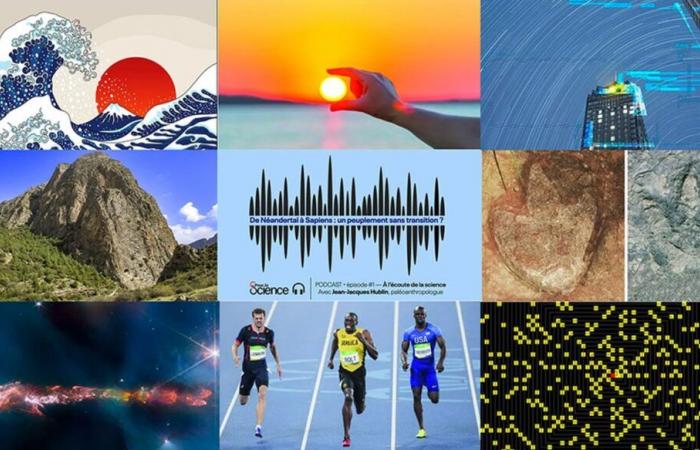10. Are we living in a simulation? The illusion thesis becomes clearer
Recent work takes up and refines the reasoning of the Swedish philosopher Nick Bostrom who, twenty years ago, considered it likely that our reality is in fact a computer simulation carried out by an advanced civilization.
Par Jean-Paul Delahaye, professor emeritus at the University of Lille and researcher at the Lille computer science, signal and automation research center (CRISTAL).
From issue n°563 – September 2024. See the summary >
9. Renormalization: when particle physics sweeps infinity under the carpet
Renormalization is a trick that allows you to get rid of annoying infinities in calculations. It saved particle physics, but what is its mathematical merit?
Par Charlie Woodjournalist specializing in physics
From Special Issue No. 125 – October 2024. See the summary >
8. James Webb Space Telescope: An Eye on Infinity
Since its launch in December 2021 and its operational commissioning in June 2022, NASA’s James Webb space telescope has been pushing the limits of our knowledge of the Universe, particularly its youth, and looking further than ever. Not quite to infinity, but almost.
Par Loïc Mangindeputy editor-in-chief of special issues at Pour La Science.
From Special Issue No. 125 – October 2024. See the summary >
7. Usain Bolt and the power… of calculation
How fast can the world’s fastest human really run? Answering requires you to study your race in detail and do a little math…
Par Steven Strogatzprofessor of mathematics at Cornell University, in Ithaca.
From Special Issue No. 124 – July 2025. See the summary >
6. When the scales of the Universe make you dizzy
The gigantic dimensions involved in the cosmos exceed the limits of human understanding. Is this a reason to give up understanding it?
Par Phil Plaitastronomer, graduate of the University of Michigan
From Special Issue No. 125 – October 2024. See the summary >
5. [Podcast – À l’écoute de la science] From Neanderthal to Sapiens: a population of Europe without transition?
In this first episode of the podcast Listening to Sciencetrace the thread of human evolution in the company of Jean-Jacques Hublin, paleoanthropologist and professor at the Collège de France.
4. “In Europe, too many people take too much vitamin D”
Lacking vitamin D leads to bone weakness; having too much makes fractures easier, or worse… So, should we supplement? Insights from Roger Bouillon, a European expert on these issues.
Interview with Roger Bouillonendocrinologist, professor emeritus of medicine at KU Leuven University, Belgium.
From issue n°556 – February 2024. See the summary >
3. A second Denisova Man fossil identified in Baishiya Cave
Bone remains unearthed at the site of Baishiya, in China, shed light on the species that the Denisovans hunted on the Tibetan plateau. They also delivered a second Denisovan fossil to this site.
Par François Savatierjournalist specializing in archeology and paleontology at Pour la Science
From issue n°563 – September 2024. See the summary >
2. A bridge would have remained between Africa and America after the breakup of Gondwana
This is suggested by similar dinosaur footprints dating back 120 million years discovered in Brazil and Cameroon.
Par Loïc Mangindeputy editor-in-chief of special issues at Pour La Science.
From Special Issue No. 123 – May 2024. See the summary >
1. A spectacular advance in the study of the distribution of prime numbers
Recent results pave the way for new strategies for tackling the Riemann hypothesis, one of the most important problems in number theory.
Par Sean Baillyjournalist specializing in physics and mathematics at Pour la Science.
From issue n°564 – October 2024. See the summary >






